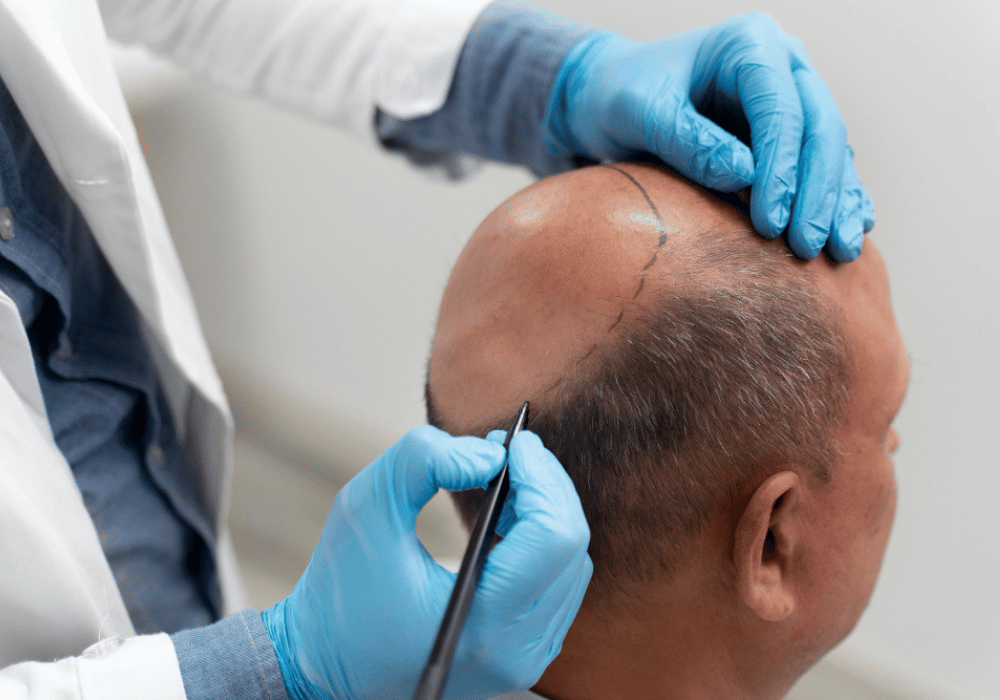Hair Transplant

Hair Transplant Services at Team Reconface
Team Reconface offers advanced and personalized hair transplant services to address hair loss and restore natural-looking hair growth. Our skilled and experienced team of specialists is dedicated to providing effective and customized solutions for individuals seeking to regain confidence through hair restoration.
The Hair Transplant Process:
Consultation: Patients undergo a thorough consultation to assess their hair loss pattern, overall health, and goals. A personalized treatment plan is then developed.
Donor Hair Harvesting: For FUT, a strip of hair-bearing scalp is harvested. For FUE, individual follicular units are extracted from the donor area.
Recipient Site Preparation: Tiny incisions are made in the recipient area where hair will be transplanted.
Hair Transplantation: The harvested follicular units are meticulously transplanted into the recipient sites, ensuring natural spacing and angles for optimal results.
Postoperative Care: Patients receive instructions for postoperative care, including activities to avoid, medications, and follow-up appointments.
Why Choose Team Reconface for Hair Transplants?
Expertise: Our team includes experienced surgeons specializing in hair restoration techniques, ensuring a high level of expertise and precision.
Customized Solutions: We tailor each hair transplant procedure to the individual’s unique hair loss pattern, facial features, and aesthetic goals.
State-of-the-Art Facilities: We utilize advanced technologies and techniques to provide optimal results while prioritizing patient safety and comfort.
Natural-Looking Results: Our goal is to achieve natural-looking hair growth and density, ensuring that the transplanted hair seamlessly blends with existing hair.
Discomfort during a hair transplant is minimal, and local anesthesia is used to numb the donor and recipient areas. Most patients report only mild discomfort during recovery.
Initial growth is usually visible within a few months, but the full results may take up to a year as the transplanted hair gradually thickens and matures.
Yes, the transplanted hair is typically permanent. However, the natural aging process can still affect non-transplanted hair.
Most individuals with sufficient donor hair can undergo a hair transplant. A consultation helps determine eligibility and the most suitable technique.
Non-surgical options, such as medications and low-level laser therapy, may be considered for certain cases. However, a hair transplant provides a more permanent solution.
Meet Our Surgeons
Opening Hours
Mon – Fri
08.00 -18.00
Sat – Sun
09.00 -15.00
Make Your Appointment

MDS, Oral & Maxillofacial Surgery Travel Fellowship (AOCMF, Germany)
Special Interest in: Oral Cancer, Orthognathic Surgery & Facial Deformity Correction

MDS, Oral & Maxillofacial Surgery Travel Fellowship, AOCMF(Beijing) Fellowship (AIMS, Kochi)
Special Interest In: Facial Reconstruction, Oral Cancer, Facial Trauma & Orthognathic Surgery

MDS, Oral & Maxillofacial Surgery
Special Interest In: Facial Reconstruction, Oral Cancer, Facial Trauma & Orthognathic Surgery
